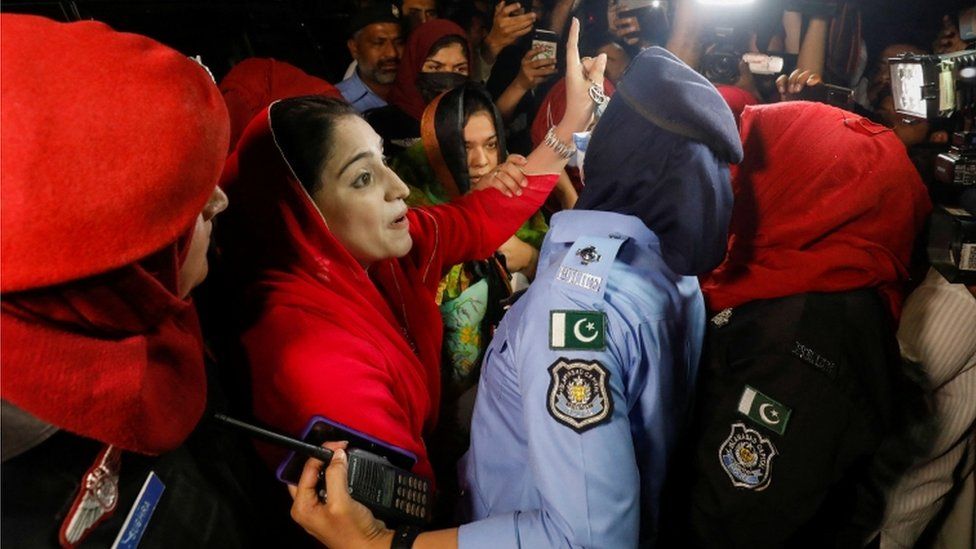Pakistan’s Prime Minister Imran Khan has been ousted from power by a no-confidence vote in the parliament after 174 votes in the 342-members voted against him.
The vote was held following days of drama. The opposition has been alleging that Mr Imran mismanaged the country’s economy.
At midnight, the Chief Justice of Islamabad High Court ordered courts and parliament to be open, police vans were seen in the vicinity of the national assembly and there were speculations that if the speaker and deputy speaker hold on the vote, they would be arrested under contempt of court also Army chief Qamar Bajwa might be de notified.
 Supporters of PM Imran Khan Protesting against the no-confidence motion
Supporters of PM Imran Khan Protesting against the no-confidence motion
The motion was first brought last week, but the Pakistan’s parliament blocked it by dissolving the no-confidence motion. Before that Imran Khan’s key alliances withdrew their support from his party.
The new No-confidence motion took place after the country's Supreme Court ruled in favor of opposition parties and said that Mr Khan had acted unconstitutionally.
Opposition leader Shehbaz Sharif - who is expected to be chosen as the new prime minister on Monday and has already been nominated for the post- said Pakistan welcome to the Purana Pakistan.
Mr Sharif - a long-time rival of Mr Khan and brother of former three-time Prime Minister Nawaz Sharif - would be able to hold power until October 2023, when the next election is due to be held.
Who are the opposition?
The opposition is headed by the Pakistan Muslim League-N (PML-N) and the Pakistan Peoples Party (PPP) -- two usually feuding dynastic groups that dominated national politics for decades until Prime Minister Imran Khan forged a coalition against them.
How long does the prime minister serve for?
The prime minister of Pakistan serves for a five-year term.
However no elected or appointed prime ministers have served the entirety of their term to date.